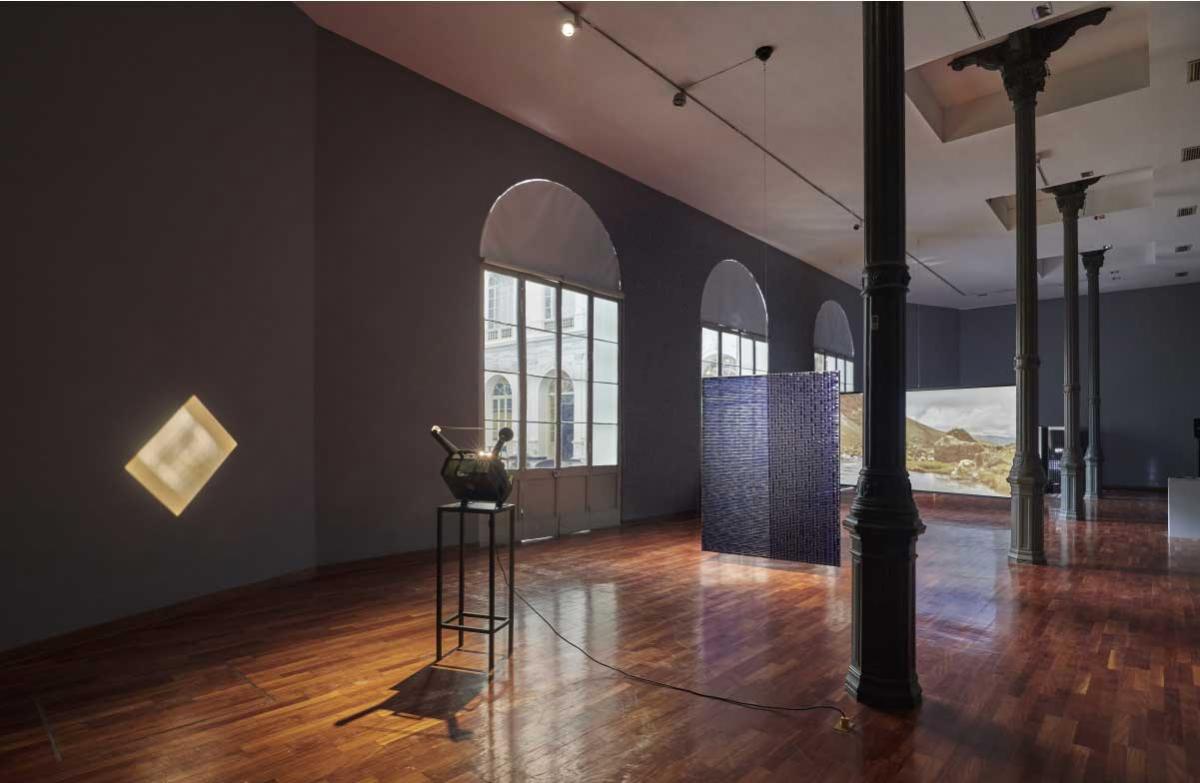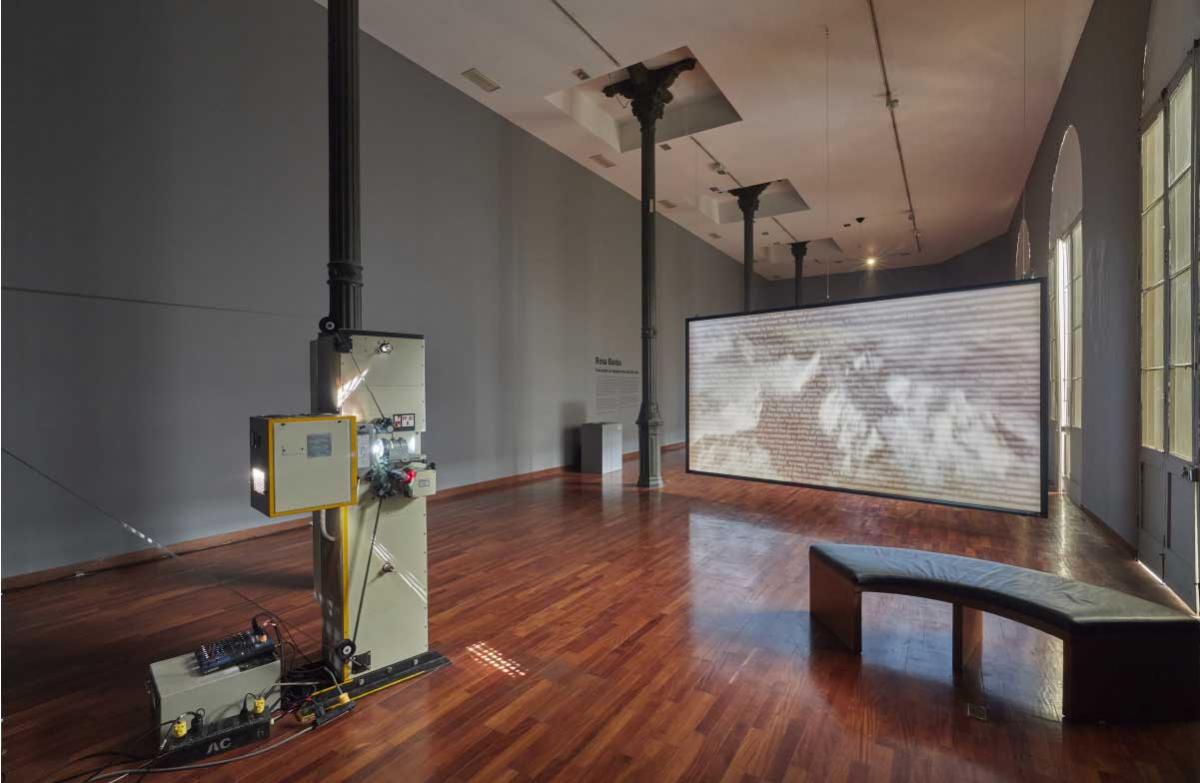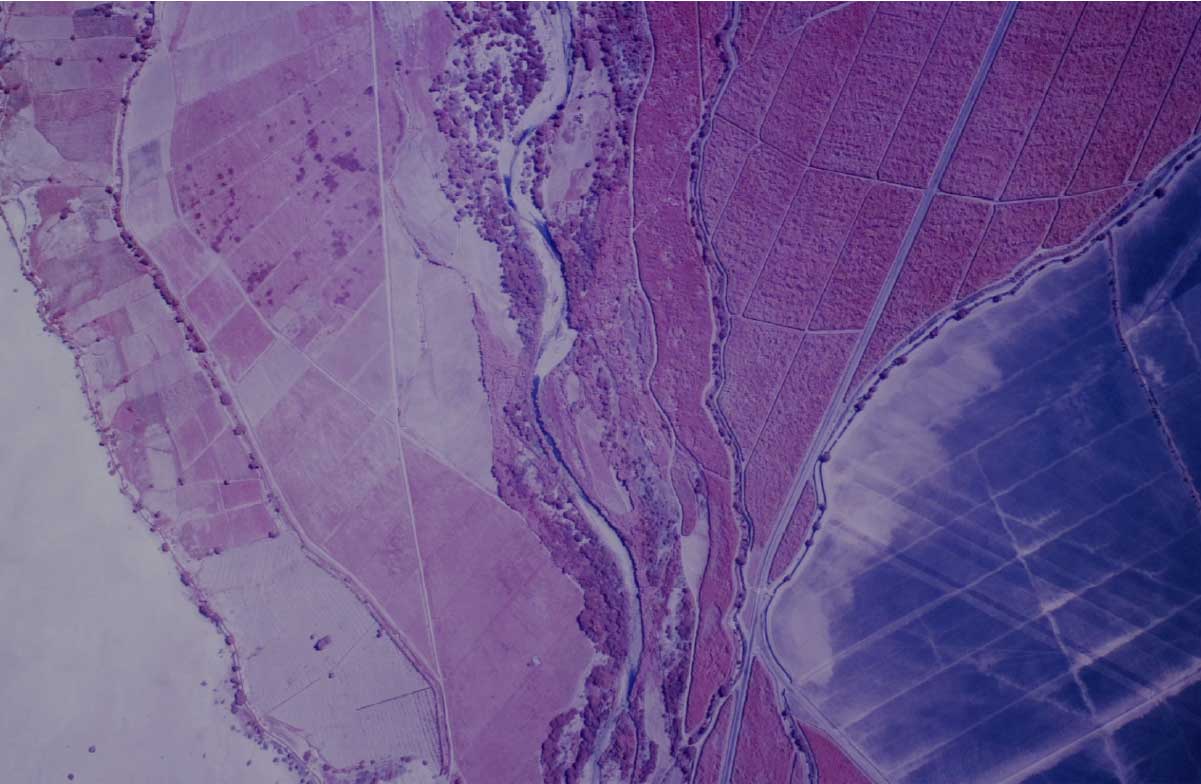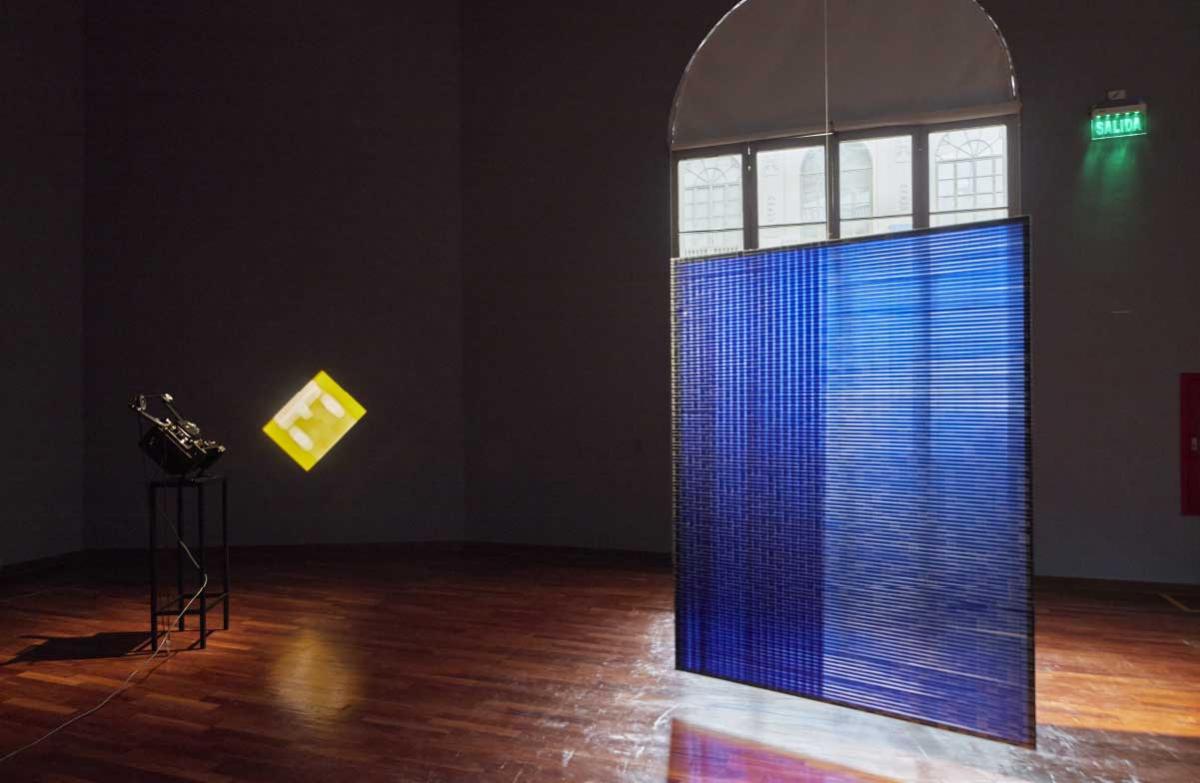



Curator
Jose-Carlos Mariátegui
16 February – 16 June
Opening and public talk
Museo de Arte de Lima – MALI
Thrusday 15 February 2024
6:30 pm
proyectoamil
Lima
The Museo de Arte de Lima – MALI and proyectoamil present Rosa Barba: Evoking a Space Beyond Cinema, a solo exhibition by the Italo-German artist Rosa Barba (Agrigento, Italy, 1972). The exhibition explores the function of film devices that have been reassembled and modified as sculptural and performative pieces, producing speculative artifacts that create unpredictable imaginaries. The exhibition will be on display in the temporary gallery 3 at MALI from February 16 to June 16, 2024.
When our perception of social life is reconfigured by algorithmic instructions and digital codifications that restrict our creative freedom, Rosa Barba’s analog machines and sculptures respond by creating spaces of ambiguity. Her work aims to break the status quo of moving images that dominate our consumption habits in favor of an anarchic temporality that distills essential characteristics of the cinematic medium. This is achieved through the contrast between natural spaces and the intrusion of technology in contexts marked by social and cultural references.
The central piece is Aggregate States of Matters (2019), a 35mm film presented as a cinematic installation. Shot in the Peruvian Andes, it addresses the growing impact of climate change. The work unveils the relationship between nature, culture, and the Andean worldview, establishing the evolutionary coexistence of living beings, plants, and territories. Through extensive dialogue with the local population, the piece reveals the blurred boundaries between human and non-human actors in communities affected by glacier melting in the Andes.
The Long Poem Manipulates Spatial Organizations (2014) is a 16mm cinematic installation where the projector has been tilted 45 degrees so that the projected image takes on a diamond shape. It is a work that balances filmic and sculptural elements, where language is constituted and collapses through colour with stenciled letters carved into the celluloid.
Inside the Outset: Evoking a Space of Passage (2021) is a film shot in Cyprus that includes underwater shots of the shipwreck -which occurred in the 4th century B.C. in the Mazotos area- as well as aerial views of archaeological sites. The work was screened in an outdoor cinematic installation in the demilitarised Buffer Zone that divides Turkish and Greek Cypriots.
Weavers (2021) is a sort of cinematic canvas formed by weaving vertical and horizontal strips of celluloid in various colours, composed of 16mm film that wraps around a warp of 35mm. The canvas rotates suspended in space, producing both reflective and transparent kinetic effects.
Finally, on the occasion of the exhibition, a printed edition of Printed Cinema — a publication in printed format, designed to express and deconstruct the cinematic element — will be presented. This edition is based on stills from the film “Radiant Exhibitions: Facts Run Like Beams of Light” (2022), which explores the desert and modern archives as a manifestation of the human desire for progress, attempting to represent a place beyond time and space, ethereal, timeless, and supernatural.
Without chasing the nostalgia of a pre-media past, Rosa Barba’s analog machines restore our sense of wonder by creating a type of visual and cognitive experience that encourages and allows open explorations. They reconfigure cinematic supports to achieve new visual forms. The MALI thus becomes a cinematic stage, where technological devices engage in a dialogue with contemporary art.
This exhibition, co-organized by the Museo de Arte de Lima – MALI and proyectoamil, is made possible through the collaboration of the PUCP Film Archive and Alta Tecnología Andina – ATA. The exhibition will be accompanied by a rich public program and guided tours through the exhibition halls.
About the artist
Rosa Barba (Agrigento, Italy, 1972) is an artist and filmmaker who combines films, sculptures, installations, live performances, texts, and publications based on cinema’s material and conceptual qualities. Her cinematic installations experiment with projection mechanisms. The relationship between human action and the environment has been a constant element in her films, which lie between experimental documentary and narrative fiction. Barba studied at the Academy of Media Arts (KHM) in Cologne, Germany, and holds a doctorate from the Malmö Art Academy at Lund University (2018). She has taught at the University of the Arts in Bremen (Germany), the Art, Culture, and Technology Program at the Massachusetts Institute of Technology – MIT (United States), and currently holds a professorship at the University of the Arts in Zurich (Switzerland). Her work is part of prestigious collections at the Museum of Modern Art in New York, Tate Modern in London, Centre Pompidou in Paris, Neue Nationalgalerie in Berlin, Reina Sofía Museum in Madrid, MAXXI in Rome, Walker Art Center in Minneapolis, Philadelphia Museum of Art, and SFMOMA in San Francisco. Her work has been exhibited in museums and biennials worldwide, including recent shows at Tate Modern, London (2023), Centre Pompidou, Paris (2023), Gangneung International Art Festival, Korea (2023), Villa Medici, Rome (2022), and Neue Nationalgalerie, Berlin (2021). She has received significant awards, such as the Calder Prize (2020), the 46th PIAC, the International Contemporary Art Prize from the Fondation Prince Pierre de Monaco (2015), the ACACIA Prize, Milan (2012), the HAP Grieshaber Prize (2007), the Kunstpreis Berlin from the Academy of Arts (2006), and the Hermann Claasen Prize (2001).